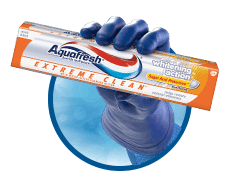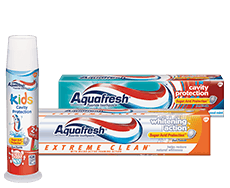What Are Cavities (Dental Caries) In Teeth?
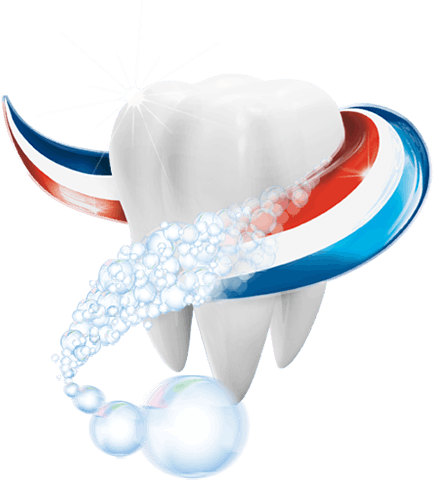
Cavities, also known as dental caries and tooth decay, which is the damage that occurs when plaque bacteria builds up in your mouth as a result of improper cleaning. This build-up creates acids that eat away at your teeth’s enamel.1 Whether you call them cavities, cavities or decay, they look like tiny holes in your teeth.1 Learn more about cavities and what causes them.
What Can Cause Cavities?
The cause of cavities is simple: the bacteria that lives in your mouth feed on sugary and starchy foods or drinks like fruit, bread, soda, or milk.1 They will turn these carbohydrates into acids.1 The acid mixes with bacteria, food and saliva to create dental plaque, a sticky substance that covers your teeth.1 When you don’t floss or brush your teeth properly, the acid in plaque can dissolve tooth enamel, which creates cavities.1
How to Help Prevent Cavities
Follow these tips to keep your teeth healthy and prevent cavities.
Tip #1: Use Flouride
Use fluoride.1 Fluoride is a mineral that can prevent tooth decay from progressing and can sometimes even help to reverse early tooth decay.2 Fluoride helps prevent mineral loss while replacing minerals your teeth may have already lost.2 You can drink fluoridated water or simply use a fluoride mouth rinse or toothpaste as part of a total daily tooth care routine.
Tip #2: Watch What You Eat And Drink
Watch what you eat. Easier said than done, right? Well remember—every time you eat or drink something that contains sugar or starches, the bacteria in your mouth have a bonanza.1 Limit candy, cookies, soda and other sugar treats for special occasions, and don't eat or drink anything sugary after brushing your teeth at night.1 Your teeth will be able to better repair themselves that way.
Tip #3: Brush Twice A Day, Every Day
Brush the bacteria away. You know the rule—twice per day, every day.1 It's the easiest way to make sure your teeth are getting clean and getting the care they deserve. You should always follow the brushing and flossing (or interdental) techniques given by tour dentist or dental hygienist to help achieve success. Don't forget to visit your dentist or dental hygienist at least twice per year for regular check-ups while you're at it.1
Learn more about sugar acid and the role it plays in tooth decay
Frequently Asked Questions
Caries vs. Cavities: What’s the Difference?
Dental caries and cavities are actually the same thing.1 So if you hear your dentist say you have caries, they’re talking about cavities, and vice versa.
Does Aquafresh Toothpaste Help Prevent Cavities?
Aquafresh toothpaste contains fluoride, which helps prevent cavities.1 View all of the Aquafresh toothpastes with fluoride today.
How Can You Tell If You Have a Cavity?
Symptoms of cavities include discoloration (that could start as a white spot or brownish area), bad breath, a bad taste in your mouth or a toothache that can be a form of sensitivity to hot, cold, sweet or sour foods.1 Your dentist can determine if you have a cavity by examining your teeth or by taking an x-ray.1
Source Citations:
- Cavities. Cleveland Clinic. https://my.clevelandclinic.org/health/diseases/10946-cavities. Accessed 5/13/2024.
- Fluoride. Cleveland Clinic. https://my.clevelandclinic.org/health/treatments/11195-fluoride. Accessed 5/13/2024.
Related Articles
Learn the difference between a tooth stain vs. a cavity so you can identify and have them treated. Aquafresh has advice on preventing both cavities and stains.



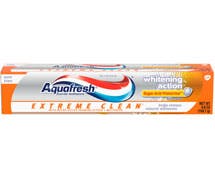
Aquafresh® Extreme Clean® can help brighten your smile in no time.
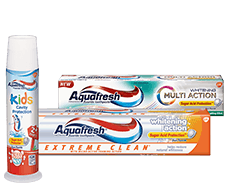
Get 75¢ off any one Aquafresh® product.

Check out more from Captain Aquafresh® to learn how to fight cavities.
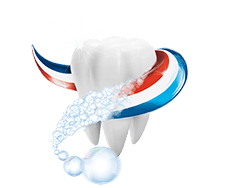
Learn more about your oral health and how Aquafresh® helps keep you feeling clean.



